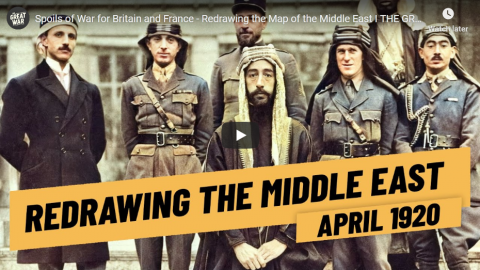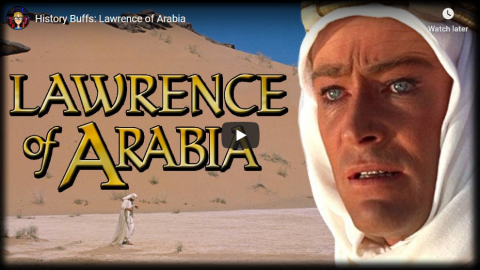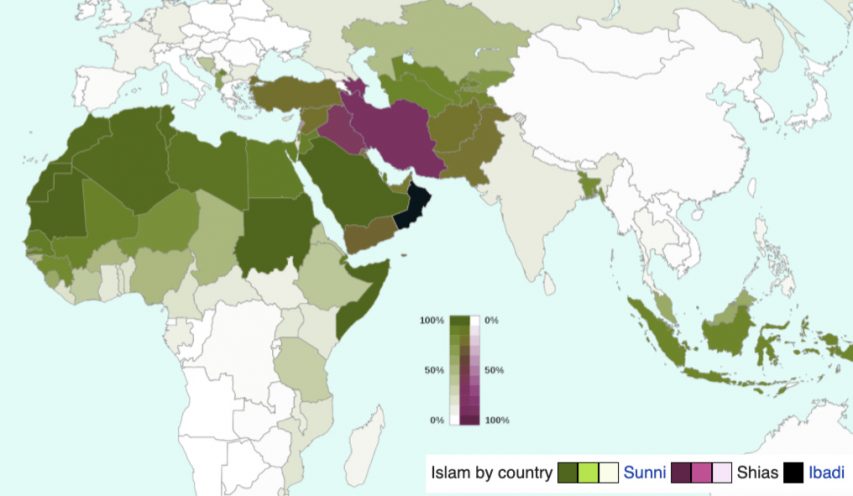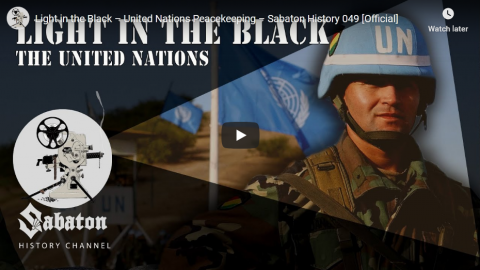REG: They’ve bled us white, the bastards. They’ve taken everything we had, and not just from us, from our fathers, and from our fathers’ fathers.
LORETTA: And from our fathers’ fathers’ fathers.
REG: Yeah.
LORETTA: And from our fathers’ fathers’ fathers’ fathers.
REG: Yeah. All right, Stan. Don’t labour the point. And what have they ever given us in return?!
XERXES: The aqueduct?
REG: What?
XERXES: The aqueduct.
REG: Oh. Yeah, yeah. They did give us that. Uh, that’s true. Yeah.
COMMANDO #3: And the sanitation.
LORETTA: Oh, yeah, the sanitation, Reg. Remember what the city used to be like?
REG: Yeah. All right. I’ll grant you the aqueduct and the sanitation are two things that the Romans have done.
MATTHIAS: And the roads.
REG: Well, yeah. Obviously the roads. I mean, the roads go without saying, don’t they? But apart from the sanitation, the aqueduct, and the roads–
COMMANDO: Irrigation.
XERXES: Medicine.
COMMANDOS: Huh? Heh? Huh…
COMMANDO #2: Education.
COMMANDOS: Ohh…
REG: Yeah, yeah. All right. Fair enough.
COMMANDO #1: And the wine.
COMMANDOS: Oh, yes. Yeah…
FRANCIS: Yeah. Yeah, that’s something we’d really miss, Reg, if the Romans left. Huh.
COMMANDO: Public baths.
LORETTA: And it’s safe to walk in the streets at night now, Reg.
FRANCIS: Yeah, they certainly know how to keep order. Let’s face it. They’re the only ones who could in a place like this.
COMMANDOS: Hehh, heh. Heh heh heh heh heh heh heh.
REG: All right, but apart from the sanitation, the medicine, education, wine, public order, irrigation, roads, a fresh water system, and public health, what have the Romans ever done for us?
XERXES: Brought peace.
REG: Oh. Peace? Shut up!
Monty Python’s Life of Brian, 1979.
February 26, 2021
QotD: “What have the Romans ever done for us?”
February 3, 2021
Fatah demands that Britain return Big Ben to its original Jerusalem home
Daniel Greenfield unravels the historical misconceptions that informed the demand:
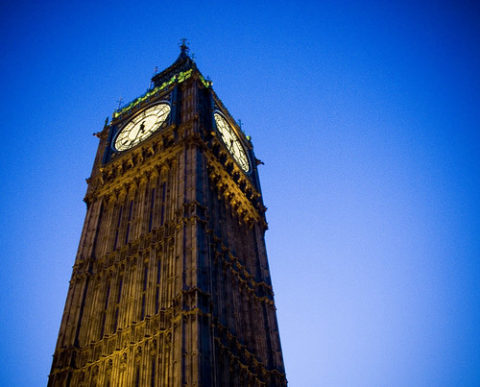
“Big Ben” by kev_zilla is licensed under CC BY-NC-ND 2.0
“The Jerusalem Clock is hidden in London today,” Fatah, the political movement behind the PLO and the Palestinian Authority, asserts in a post titled, “Jerusalem Stolen Clock”.
It goes on to claim that the British military ordered the clock tower dismantled. Then the “British moved the clock first to a new tower across from the municipality of Jerusalem, and transferred it to the British Museum in London, to become the famous British icon, ‘Big Ben’.”
How did Big Ben, which was built in 1859, become a Muslim clock tower from the 20th century?
There are some other slight differences between London’s Big Ben and the “stolen clock” such as the fact that Big Ben is 316 feet tall while the “Palestinian” clock tower was only 42 feet.
But the story of the “Palestinian clock” is also the story of the entire myth of “Palestine”.
When you believe that the Jerusalem of King David and King Solomon was originally yours, you can just as easily believe that London’s Big Ben was originally the property of “Palestine”.
The “Palestinian clock” is as real as “Palestine”. The myth of a “Palestinian” people propounded by Fatah which has spent decades killing over it is also the story of the “Palestinian clock”.
There’s no more of a “Palestinian” people who were dispossessed by the Jews than Big Ben is a “Palestinian” clock stolen and passed off as London’s Big Ben. Both are fake history built out of resentments and garbled stories whose context has been lost, but whose hatreds remain real.
There were never any Palestinians. When the clock was built the region had been part of the Ottoman Empire, the last Caliphate until ISIS. The caliphates had settled it with Arab Muslim clans who dominated Christian refugees fleeing Muslim persecution, along with groups of other minorities from escaped slaves to gypsies, along with the indigenous Jewish population.
The Ottomans had become obsessed with clock towers as a symbol of their empire. But the Ottomans hadn’t invented them, they had adopted them from Europe, and planted them in major cities of the empire to create a common sense of time and belonging for their subjects.
Sultan Abdul Hamid II, the last real sultan of the empire, obsessively erected clock towers to show off how modern the Ottoman Empire was. But by then the Empire was anything but modern and Hamid’s clock tower craze was powered by his German allies. Kaiser Wilhelm II gave Hamid a batch of clocks at the turn of the century which the Turks put into clock towers.
The Ottoman Empire erected some of its clock towers in Israel. These clock towers utilized the talents and funds of the indigenous Jewish and the Arab Muslim settler population. The clock tower projects in Israel began in 1901 which is also the date when Wilhelm sent Hamid a whole bunch of clocks. One of these clock towers was stuck on Jerusalem’s Jaffa Gate which Hamid had previously cut a hole in so that the Kaiser could enter Jerusalem in his tall plumed helmet.
H/T to Kate at SDA for the link.
August 14, 2020
How Feminism Came to the Middle East – Women’s Emancipation – WW2 – On the Homefront 006
World War Two
Published 13 Aug 2020While battles rage across the world, women at home are fighting for their basic emancipation. In Egypt, Huda Shaarawi stands at the centre of this struggle.
Join us on Patreon: https://www.patreon.com/TimeGhostHistory
Or join The TimeGhost Army directly at: https://timeghost.tvFollow WW2 day by day on Instagram @World_war_two_realtime https://www.instagram.com/world_war_two_realtime
Between 2 Wars: https://www.youtube.com/playlist?list…
Source list: http://bit.ly/WW2sourcesHosted by: Anna Deinhard
Written by: Spartacus Olsson and Fiona Rachel Fischer
Director: Astrid Deinhard
Producers: Astrid Deinhard and Spartacus Olsson
Executive Producers: Astrid Deinhard, Indy Neidell, Spartacus Olsson, Bodo Rittenauer
Creative Producer: Joram Appel
Post-Production Director: Wieke Kapteijns
Research by: Fiona Rachel Fischer
Edited by: Miki Cackowski
Sound design: Marek Kamiński
Map animations: Eastory (https://www.youtube.com/c/eastory)Colorizations by:
Daniel Weiss
Carlos Ortega Pereira, BlauColorizations – https://www.instagram.com/blaucoloriz…
Norman Stewart – https://oldtimesincolor.blogspot.com/Sources:
TIMEA
Bundesarchiv
IWM E 817
USHMM
From the Noun Project: Letter by Mochammad KafiSoundtracks from the Epidemic Sound:
Rune Dale – “Scented Nectar”
Deskant – “Genie’s Bane”
Deskant – “Divine Serpent”
Deskant – “Dunes of Despair”
Sight of Wonders – “Call of Muezzin”
Philip Ayers – “Trapped in a Maze”
Skrya – “First Responders”Archive by Screenocean/Reuters https://www.screenocean.com.
A TimeGhost chronological documentary produced by OnLion Entertainment GmbH.
July 26, 2020
French War In Syria – British War Against The Iraqi Revolution I THE GREAT WAR 1920
The Great War
Published 25 Jul 2020Sign up for Curiosity Stream and get Nebula bundled in: https://curiositystream.com/thegreatwar
The French and British colonial powers had their own plans on how to rule the Middle East after the costly campaigns of World War 1. National self-determination for the different groups in Syria, Iraq, Palestine and Arabia were not part of these plans. And so in the summer of 1920 the situation in Iraq and Syria escalated and the French-Syrian War and the Iraqi Revolt broke out.
» SUPPORT THE CHANNEL
Patreon: https://www.patreon.com/thegreatwar» OUR PODCAST
https://realtimehistory.net/podcast – interviews with World War 1 historians and background info for the show.» BUY OUR SOURCES IN OUR AMAZON STORES
https://realtimehistory.net/amazon *
*Buying via this link supports The Great War (Affiliate-Link)» SOURCES
Kadhim, Abbas. Reclaiming Iraq: the 1920 revolution and the founding of the modern state (U of Texas Press, 2012).
Allawi, Ali. Faisal I of Iraq (Yale University Press, 2014).
Fromkin, David. A Peace to End All Peace (Macmillan, 2009 [1989]).
Naaman, Abdullah. Le Liban: histoire d’une nation inachevée.
Karsh, Efraim & Karsh, Inari. Empires of the Sand: The Struggle for Mastery in the Middle East 1789-1923, (Cambridge, MA : Harvard University Press, 1999)» MORE THE GREAT WAR
Website: https://realtimehistory.net
Instagram: https://instagram.com/the_great_war
Twitter: https://twitter.com/WW1_Series
Reddit: https://reddit.com/r/TheGreatWarChannel»CREDITS
Presented by: Jesse Alexander
Written by: Jesse Alexander
Director: Toni Steller & Florian Wittig
Director of Photography: Toni Steller
Sound: Toni Steller
Editing: Toni Steller
Motion Design: Philipp Appelt
Mixing, Mastering & Sound Design: http://above-zero.com
Maps: Daniel Kogosov (https://www.patreon.com/Zalezsky)
Research by: Jesse Alexander
Fact checking: Florian WittigChannel Design: Alexander Clark
Original Logo: David van StepholdContains licensed material by getty images
All rights reserved – Real Time History GmbH 2020
May 10, 2020
QotD: “Shirtstorm” and other forms of systematic patriarchal oppression of women
Shirtstorm was more of the same. Rose Eveleth, Vagina Vigilante, might not know much about probes or comets, or have much interest in them. One gets a feeling in her mind aerospace is that icky thing that sweaty, nerdy boys do. So, forced to cover it (or snatching it up as a prize assignment) for her paper, she paid attention to the one important thing in the world: herself. And since she’s female, she projected her prejudices onto all other females, and decided women everywhere would be put off science by a man’s shirt decorated with “space pinups.” A shirt made by a woman. A shirt worn amid a team whose leader was a woman who saw nothing wrong with it. But Vagina Vigilante was on the job! One gets the feeling she didn’t do very well at science, and now she had a REASON. It was the sexism of the field, manifest in a shirt.
Which totally justified making a rocket scientist cry on the day of his greatest triumph. After all, people like him had ruined her life, right?
But it gets worse than that – there was an entire campus filled with supposedly educated (ah!) women terrorized by the statue of a sleep walking man.
And then there’s the ever-elastic definition of “sexual assault” which – I’m not making this up – can now be ratcheted down to “Looked at me in a way that made me feel uncomfortable” or, for that matter “failed to sexually assault me.” Oh, sorry, that last was the definition of racism. Some Palestinian woman looked at rape statistics and found that Israeli women are raped by Palestinian men in much higher numbers than Palestinian women are raped by Israeli men, and immediately concluded this is because Israelis are racist. It beggars the mind.
Another thing that beggars the mind is the progressive image of women as great warriors. You know, in all the movies and half the books (often without supernatural explanation) a 90 lb chick can beat 300 lb men. And women were always great fighters throughout the ages. And, and, and …
And yet, women are peaceful – peaceful, d*mn it. This is why “peaceful planet of women” is a trope on TV tropes. Not just a trope, but a dead horse one.
Attempts to square that circle have included the explanation that women are only violent because patriarchy. There needs be nothing else said because in this context, and with apologies to the ponies, Patriarchy Is Magic. Honorable mention on trying to square the circle must go to Law and Order‘s attempted episode on Gamer Gate where the game the woman designer had written was about Peaceful Amazon Warriors.
Sarah Hoyt, “Give Me My Smelling Salts, Ho! A Blast From The Past From April 2015”, According to Hoyt, 2020-01-22.
April 30, 2020
Palestine, 1948 – the origins of the still-ongoing refugee issue
In Quillette, Benjamin Kerstein reviews a new book by Adi Schwartz and Einat Wilf, which covers the origins of the Palestinian refugee problem that still hinders any kind of lasting peace between Israel and neighbouring Arab countries:
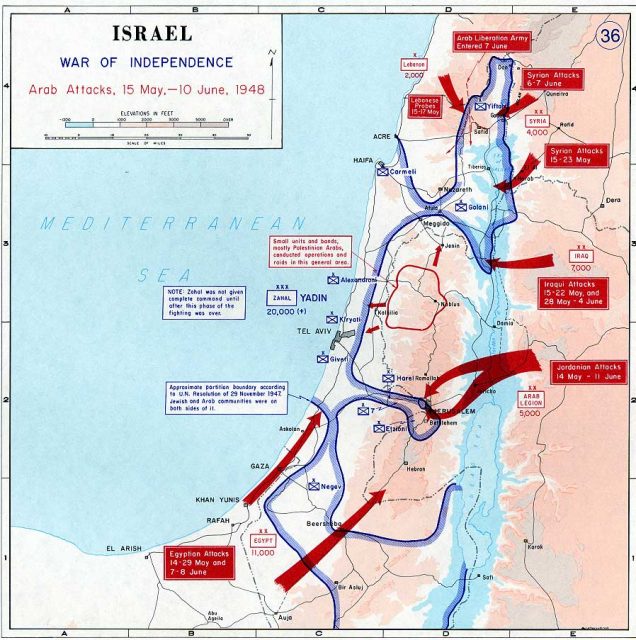
Arab attacks in May and June 1948.
United States Military Academy Atlas, Link.
Wilf and Schwartz’s comprehensive history of the refugee issue begins with the UN’s adoption in November 1947 of a plan to partition British Mandatory Palestine into an Arab state and a slightly smaller Jewish state. Violence erupted shortly after, and once the British left the territory, hostilities escalated into a full-scale war, during which fighting between the Zionist movement’s Haganah defense force and various Palestinian Arab militias was followed by an invasion by the surrounding Arab countries. Israel prevailed with truncated borders, but the Arab world remained steadfastly committed to the new state’s elimination. Refugees are a byproduct of every military conflict, but the exodus of the Palestinian Arabs would have uniquely consequential ramifications that continue to haunt the conflict and thwart its resolution to this day.
It is now fashionable for historians sympathetic to the Palestinian narrative to downplay the threat that the Jewish community in Mandatory Palestine — the Yishuv — faced in the 1948 conflict. Wilf and Schwartz show conclusively that such attempts, be they sincere or dishonest, are simply untrue. The secretary-general of the Arab League, they note, openly stated that the war was intended to be genocidal, saying, “This will be a war of extermination and momentous massacre, which will be spoken of like the Mongolian massacre and the Crusades.” Meanwhile, the Palestinian Arabs’ most influential leader, the Nazi collaborator Mufti Hajj Amin al-Husseini, said the Arabs would “continue to fight until the Zionists are eliminated, and the whole of Palestine is a purely Arab state.”
Correctly believing that their individual and collective existence were threatened, the Zionist militias, which eventually coalesced into the nascent Israel Defense Forces, sometimes destroyed villages and expelled their inhabitants, and there was a mass flight of Arabs from cities like Haifa and Jaffa. By the end of the war, what emerged was a Jewish state with a comfortable Jewish majority along with a substantial though not overwhelming Arab minority. The refugees, for the most part, were settled in camps in the surrounding Arab nations of Syria, Lebanon, and Jordan, as well as in the West Bank and Gaza, which were occupied by Jordan and Egypt, respectively. Jordan alone granted the refugees citizenship and absorbed them into the general population. Elsewhere, however, refugees remained stateless, left to the tender mercies of the international community.
From the beginning, pressure was brought to bear on Israel to allow the refugees to return, and from the beginning Israel steadfastly refused to do so, believing that it would destroy Israel’s Jewish character and precipitate another, perhaps even more brutal war. Wilf and Schwartz reveal that this was in fact precisely the Arabs’ intention. The Arab media spoke openly of establishing a “fifth column” within Israel by repatriating the refugees, and the authors record Palestinian historian Rashid Khalidi’s view that the Arab mood at the time made it clear that the right of return “was clearly premised” on “the dissolution of Israel.” In addition, the Palestinian leadership was initially unenthusiastic about the return of refugees, which they believed would imply a recognition of Israel’s existence to which they remained implacably opposed. For a society deeply rooted in concepts of honor, dignity, and humiliation, such an acknowledgement of defeat was simply unthinkable.
Contrary to the claims of Israel’s opponents, Wilf and Schwartz persuasively argue that the new state was under no moral or legal obligation to allow the refugees to return. During the late 1940s and early 1950s, the concept of population exchange between belligerent national groups in conflict over territory was considered lamentable but inevitable. Consequently, the laws pertaining to refugees often forbade the opposite: States could not force refugees to return to places when to do so might cause further conflict or instability. Emphasis was therefore on resettlement in host countries, usually with a corresponding ethnic or religious majority. This held true for the mass expulsions of ethnic Germans from Poland after World War II, and the almost contemporaneous exodus of both Muslims and Hindus to Pakistan and India, respectively. Importantly, it also applied to the hundreds of thousands of Jewish refugees expelled from Arab and Muslim countries following the 1948 war, who were resettled in the new State of Israel.
Once the Arab and Palestinian position on return shifted from a fear of recognizing Israel to the idea of building a fifth column within the state to wage an indefinite war against Zionism, Wilf and Schwartz write, “The state of Israel … was being asked by the Arabs to perform an extraordinary act: it was called on to admit to its sovereign territory hundreds of thousands of Arabs, against international norms of the time, without a peace treaty, and while the Palestinians and the Arab world continued to threaten it with another war — even calling the refugees a pioneer force toward this end.”
Although anti-Zionists today insist that Israel’s refusal to accept a return of the refugees was a uniquely heinous violation of human rights and international law, it was entirely consistent with the moral and legal norms of the time.
April 27, 2020
Spoils of War for Britain and France – Redrawing the Map of the Middle East I THE GREAT WAR 1920
The Great War
Published 25 Apr 2020Sign up for Curiosity Stream and Nebula – and get 40% off annual plans right now: https://curiositystream.com/thegreatwar
100 years ago at the conference of San Remo, one thing became clear: Great Britain and France wanted control over the Middle East. Justified by the fighting in the previous years and painted as “liberators” of the Middle Eastern minorities, the new map of the Middle East emerged – under the cover of the League of Nations Mandate system.
» SUPPORT THE CHANNEL
Patreon: https://www.patreon.com/thegreatwar
Merchandise: https://shop.spreadshirt.de/thegreatwar/» SOURCES
Karsh, Efraim & Karsh, Inari, Empires of the Sand: The Struggle for Mastery in the Middle East 1789-1923, (Cambridge, MA : Harvard University Press, 1999)“Dans Le Levant” Le Temps, August 31, 1919 issue, https://gallica.bnf.fr/ark:/12148/bpt…
Lloyd George, David, Memoirs of the Peace Conference, (New Haven : Yale University Press, 1939) vol. 2
“Mounted Rifles Units” New Zealand History, https://nzhistory.govt.nz/war/aucklan…
Paris, Timothy J. Britain, The Hashemites and Arab Rule 1920-1925, (London : Frank Cass, 2003)
Provence, Michael, The Last Ottoman Generation and the Making of the Modern Middle East, (Cambridge : Cambridge University Press, 2017)
O’Neill, Robert, Official History of Australia in the War of 1914–1918, Volume VII – The Australian Imperial Force in Sinai and Palestine, 1914–1918, (Australian War Memorial, 1941)
“King-Crane Commission Digital Collection” Oberlin College Library. http://dcollections.oberlin.edu/cdm/s…
» SOCIAL MEDIA
Instagram: https://instagram.com/the_great_war
Twitter: https://twitter.com/WW1_Series
Reddit: https://reddit.com/r/TheGreatWarChannel»CREDITS
Presented by: Jesse Alexander
Written by: Jesse Alexander
Director: Toni Steller & Florian Wittig
Director of Photography: Toni Steller
Sound: Toni Steller
Editing: Toni Steller
Mixing, Mastering & Sound Design: http://above-zero.com
Maps: Daniel Kogosov (https://www.patreon.com/Zalezsky)
Research by: Jesse Alexander
Fact checking: Florian WittigChannel Design: Alexander Clark
Original Logo: David van StepholdA Mediakraft Networks Original Channel
Contains licensed material by getty images
All rights reserved – Real Time History GmbH 2020
April 16, 2020
QotD: Nietzsche’s ideas
… an accurate and intelligent account of Nietzsche’s ideas, by one who has studied them and understands them, is, as Mawruss Perlmutter would say, yet another thing again. Seek in What Nietzsche Taught, by Willard H. Wright, and you will find it. Here in the midst of the current obfuscation, are the plain facts, set down by one who knows them. Wright has simply taken the eighteen volumes of the Nietzsche canon and reduced each of them to a chapter. All of the steps in Nietzsche’s arguments are jumped; there is no report of his frequent disputing with himself; one gets only his conclusions. But Wright has arranged these conclusions so artfully and with so keen a comprehension of all that stands behind them that they fall into logical and ordered chains, and are thus easily intelligible, not only in themselves, but also in their interrelations. The book is incomparably more useful than any other Nietzsche summary that I know. It does not, of course, exhaust Nietzsche, for some of the philosopher’s most interesting work appears in his arguments rather than in his conclusions, but it at least gives a straightforward and coherent account of his principal ideas, and the reader who has gone through it carefully will be quite ready for the Nietzsche books themselves.
These principal ideas all go back to two, the which may be stated as follows:
- Every system of morality has its origin in an experience of utility. A race, finding that a certain action works for its security and betterment, calls that action good; and, finding that a certain other action works to its peril, it calls that other action bad. Once it has arrived at these valuations it seeks to make them permanent and inviolable by crediting them to its gods.
- The menace of every moral system lies in the fact that, by reason of the supernatural authority thus put behind it, it tends to remain substantially unchanged long after the conditions which gave rise to it have been supplanted by different, and often diametrically antagonistic conditions.
In other words, systems of morality almost always outlive their usefulness, simply because the gods upon whose authority they are grounded are hard to get rid of. Among gods, as among office-holders, few die and none resign. Thus it happens that the Jews of today, if they remain true to the faith of their fathers, are oppressed by a code of dietary and other sumptuary laws — i.e., a system of domestic morality — which has long since ceased to be of any appreciable value, or even of any appreciable meaning, to them. It was, perhaps, an actual as well as a statutory immorality for a Jew of ancient Palestine to eat shell-fish, for the shell-fish of the region he lived in were scarecly fit for human food, and so he endangered his own life and worked damage to the community of which he was a part when he ate them. But these considerations do not appear in the United Sates of today. It is no more imprudent for an American Jew to eat shell-fish than it is for him to eat süaut;ss-und-sauer. His law, however, remains unchanged, and his immemorial God of Hosts stands behind it, and so, if he would be counted a faithful Jew, he must obey it. It is not until he definitely abandons his old god for some modern and intelligible god that he ventures upon disobedience. Find me a Jew eating oyster fritters and I will show you a Jew who has begun to doubt very seriously that the Creator actually held the conversation with Moses described in the ninteenth and subsequent chapters of the Book of Exodus.
H.L. Mencken, “Transvaluation of Morals”, The Smart Set, 1915-03.
March 7, 2020
History Buffs: Lawrence of Arabia
History Buffs
Published 17 Apr 2016BIG THANK YOU TO THE GREAT WAR CHANNEL FOR COLLABORATING WITH ME AND MAKING AWESOME VIDEOS!
Check out their T.E. Lawrence video here –
https://www.youtube.com/watch?v=iqvcjL6ObH0And the rest of their awesome channel here 🙂
https://www.youtube.com/user/TheGreatWarAnd thank you History Buffs so very much for being patient whilst I was in Ireland working on the Vikings podcasts for the History Channel and moving house at the same time. I sincerely hope you guys enjoy this review!
● Follow us on Twitter: https://twitter.com/HistoryBuffsNH
_________________________________________________________________________
Lawrence of Arabia is a 1962 epic historical drama film based on the life of T. E. Lawrence. It was directed by David Lean and produced by Sam Spiegel through his British company Horizon Pictures, with the screenplay by Robert Bolt and Michael Wilson. The film stars Peter O’Toole in the title role. It is widely considered one of the greatest and most influential films in the history of cinema. The dramatic score by Maurice Jarre and the Super Panavision 70 cinematography by Freddie Young are also highly acclaimed. The film was nominated for ten Academy Awards and won seven in total including Best Director, Best Sound Editing, Best Film Editing, and Best Picture.
The film depicts Lawrence’s experiences in the Arabian peninsula during World War I, in particular his attacks on Aqaba and Damascus and his involvement in the Arab National Council. Its themes include Lawrence’s emotional struggles with the personal violence inherent in war, his own identity, and his divided allegiance between his native Britain and its army and his new-found comrades within the Arabian desert tribes.
In 1991, Lawrence of Arabia was deemed “culturally, historically, or aesthetically significant” and selected for preservation in the United States Library of Congress National Film Registry.
February 3, 2020
Yet another attempted settlement of the Arab-Israeli conflict that will go nowhere
Ted Campbell on the recent peace plan proposed by US president Donald Trump:
On the subject of the Trump Mideast Peace Plan, I agree with both The Economist which says, “as a blueprint for a two-state solution it was dead on arrival,” and with the Globe and Mail‘s Mark MacKinnon who writes that “President Donald Trump’s Middle East peace plan … aims to resolve the Israeli-Palestinian conflict almost completely on Israel’s terms [and, while] Mr. Trump’s allegiances came as no surprise [to the Palestinian leaders, but] some of [their] bitterness was reserved for the leaders of Arab states that Palestinians see as quietly going along with the designs of the U.S. President and Israeli Prime Minister Benjamin Netanyahu.”
I think that is because President Trump, and much of the world, has lost patience with the Palestinians who still demand a right of return that, if ever seriously considered by anyone, would destroy Israel. Only Iran really wants that.
The strategic situation in the region, indeed in the entire Islamic Crescent which stretches from Mauritania and Morocco on the Atlantic coast of West Africa to Indonesia in East Asia, has changed in the past 70 years. There is no longer a unified Muslim “world” that opposes the very existence of a Jewish state in the Middle East. Indeed, a few Arab and Islamic states have correct, even friendly relations with Israel and others trade with the Jewish state (without having diplomatic relations) to their mutual advantage. The current problems in the region are centred on a power struggle between the Shia Islamic community, centred in Iran and the larger but socially and politically fragmented Sunni Islamic community …
… the differences are more than just religious. Iran, backed by China and Russia, and Saudi Arabia, backed by the USA, are engaged in something close to a real shooting war while Egypt and Turkey egg them both on. All four have some claim to dominance in the region and none is a real “friend” to any of the others and none gives a damn about Palestine or the Palestinian people.
[…]
President Trump has done a big political favour for Benjamin Netanyahu … but, ultimately it is probably pointless, and he and his successor and her (or his) successor, too, will likely still be seized with this issue in 2025 and 2030 and beyond.
Eventually, a solution will be found … it will, I suspect, involve Israel ceding a bit of territory to a new Palestinians state and, perhaps, establishing some sort of controlled, limited access corridor from the West Bank, possibly across the Northern Negev Desert. More importantly, it will involve Israel and Jordan, working in tandem, helping the new state to grow and prosper and live in peace with its neighbours. It’s a dream, of course, but it’s better, better for everyone, than is another war.
January 17, 2020
Zionism, Arabism & Colonialism in the Middle East | BETWEEN 2 WARS I 1936 Part 1 of 3
TimeGhost History
Published 16 Jan 2020After more than twenty years of colonial management, promises made but few promises kept and ethnic & cultural clashes in the area, unrest in the Middle East erupts in violence. A series of movements originate in this time, with long lasting consequences.
Watch our episode about the Middle east in the 1920s here: https://youtu.be/y6tSvRbvh2s
Join us on Patreon: https://www.patreon.com/TimeGhostHistory
Hosted by: Indy Neidell
Written by: Joram Appel
Directed by: Spartacus Olsson and Astrid Deinhard
Executive Producers: Bodo Rittenauer, Astrid Deinhard, Indy Neidell, Spartacus Olsson
Creative Producer: Joram Appel
Post-Production Director: Wieke Kapteijns
Research by: Joram Appel
Fact-Checking by: Jonas Srouji
Edited by: Daniel Weiss
Sound design: Marek KaminskiSources:
Arab by LINECTOR from the Noun Project
Bomb by P Thanga Vignesh from the Noun ProjectColorizations by:
– Dememorabilia – https://www.instagram.com/dememorabilia/
– Adrien.Colorisation – https://instagram.com/adrien.colorisa…
– Norman StewartSoundtracks from Epidemic Sound:
– “Dawn Of Civilization” – Jo Wandrini
– “The Inspector 4” – Johannes Bornlöf
– “Easy Target” – Rannar Sillard
– “First Responders” – Skrya
– “Not Safe Yet” – Gunnar Johnsen
– “Deflection” – Reynard Seidel
– “The Charleston 3” – Håkan ErikssonA TimeGhost chronological documentary produced by OnLion Entertainment GmbH.
From the comments:
TimeGhost History
42 minutes ago (edited)
We have already covered “Carving up the Middle East” in one of our first Between Two Wars episodes (watch here: https://youtu.be/y6tSvRbvh2s), but we felt like we had to return to the area one more time as all that carving had quite some consequences. This means that a large part of this episode is about colonialism, Zionism, Arabism, race and ethnicity. I’m also aware of the complicated modern-day conflict in the area, many of which originate in [the events covered in] this episode. However, we would like the comment section to be reserved for debating the history. We’re not going to engage with people discussing modern-day issues and politics, and we’re going to be quite strict in monitoring any racist or otherwise hateful comments.Cheers,
Joram
January 10, 2020
“Light in the Black” – United Nations Peacekeeping – Sabaton History 049 [Official]
Sabaton History
Published 9 Jan 2020The United Nations were created to avoid any future human suffering and all-out conflict. Numerous peacekeeping missions had the goal to deescalate and protect the innocent. However, the success and usefulness of the UN is still quite ambiguous. The Sabaton song “Light in the Black” is about the UN peacekeeping missions and we tell you about the history.
Support Sabaton History on Patreon: https://www.patreon.com/sabatonhistory
Listen to Attero Dominatus (where “Light in the Black” is featured):
CD: http://bit.ly/AtteroDominatusStore
Spotify: http://bit.ly/AtteroDominatusSpotify
Apple Music: http://bit.ly/AtteroDominatusAppleMusic
iTunes: http://bit.ly/AtteroDominatusiTunes
Amazon: http://bit.ly/AtteroDominatusAmzn
Google Play: http://bit.ly/AtteroDominatusGooglePlayListen to Sabaton on Spotify: http://smarturl.it/SabatonSpotify
Official Sabaton Merchandise Shop: http://bit.ly/SabatonOfficialShopHosted by: Indy Neidell
Written by: Markus Linke and Indy Neidell
Directed by: Astrid Deinhard and Wieke Kapteijns
Produced by: Pär Sundström, Astrid Deinhard and Spartacus Olsson
Creative Producer: Joram Appel
Executive Producers: Pär Sundström, Joakim Broden, Tomas Sunmo, Indy Neidell, Astrid Deinhard, and Spartacus Olsson
Production Intern: Rune Væver Hartvig
Post-Production Director: Wieke Kapteijns
Edited by: Iryna Dulka
Sound Editing by: Marek Kaminski and Karolina Dolega
Maps by: Eastory – https://www.youtube.com/c/eastoryArchive by: Reuters/Screenocean https://www.screenocean.com
Music by Sabaton.Sources:
RijksmuseumAn OnLion Entertainment GmbH and Raging Beaver Publishing AB co-Production.
© Raging Beaver Publishing AB, 2019 – all rights reserved.
QotD: Deciding what is “newsworthy”
[…] the ripples of battle in their formal sense are guided by the presence of historians, and that means originally Westerners, and more recently in large part Europeans and Americans. And such distortions do not always play out in bias toward Westerners, especially in the present age. In April 2002 the Israeli Defence Forces entered the West Bank community of Jenin to hunt out suspected suicide-murderers, whose co-members had blown up hundreds of Israeli civilians over the prior year. Although fewer than sixty Palestinians were killed in Jenin — the great majority of them combatants — the world media seized upon the street fighting, dubbing it “Jeningrad” as if they were somehow the moral equivalent of one million Germans and Russians lost at Stalingrad. Yet just days after the Israeli withdrawal from Jenin, Pakistan squared off against India. The stakes were surely far higher: One-fifth of the world’s population was involved. Both sides were nuclear powers and issued threats to use their arsenals. In the prior year alone nearly four times more Indians and Pakistanis were killed than Palestinians and Israelis. By any calculation of numbers, the specter of the dead, the geopolitical consequences, or the long-term environmental health of the planet, the world should know all the major cities in Kashmir rather than a few street names in Jenin. And if the world sought to chronicle destruction and death in an Islamic city, then by any fair measure it should have turned its attention to Grozny, where an entire society of Muslim Chechnyans was quite literally obliterated by the Russian army.
The idiosyncracies of historical remembrance of battle do not hinge alone on the presence of a Socrates or Teddy Roosevelt in the ranks. Sometimes there are wild cards of culture and politics as well. In this case and at this time, the fact that Israelis fit the stereotype of affluent and proud Westerners abroad while the Palestinians were constructed as impoverished and oppressed colonial subjects brought to the equation the sympathies of influential Americans and Europeans in the media, universities, and government — the prominent and sometimes worrisome elites who determined to send their reporters, scholars, and diplomats to Jenin rather than to Islamabad or Grozny.
Victor Davis Hanson, Ripples of Battle, 2004.
November 28, 2018
AirBnB virtue signals its … anti-semitic street cred?
In the National Post, Barbara Kay discusses the odd business choices of AirBnB in cutting off rentals to only certain locations that just happen to be in Israel:
Planning a group holiday in Kashmir? Airbnb is there to serve you. Likewise in Tibet, northern Cyprus and Georgia’s separatist republic of Abkhazia, all occupied or disputed territories. Airbnb’s political neutrality in these hot spots therefore quite rightly casts suspicion, to put it mildly, on its recent decision to delist some 200 Jewish homes in West Bank communities.
Airbnb stated, “We know that people will disagree with this decision and appreciate their perspective. This is a controversial issue.” No kidding. An Israeli class-action lawsuit has been filed against Airbnb, seeking US$4,000 in damages for every affected host.
Indignation has been running high outside of Israel as well, in statements both spontaneous — disgusted blog, Twitter and Facebook posts — and considered. The Beverly Hills city council, for example, passed a unanimous condemnatory resolution, calling Airbnb out for anti-Semitism and stating, in part: “The City of Beverly Hills hereby calls upon Airbnb to correct this act of disrespect to the land of Israel and restore its original services immediately.”
Setting aside the anti-Semitic optics, is it legal for Airbnb to do this?
The U.S. Constitution, as well as various state laws and acts of Congress, prohibits both American individuals and corporations from participating in boycotts against other nations. A corporate boycott against a foreign government does not fall under the “free speech” rubric,” but is considered a “tool of statecraft” reserved for the federal government in such situations as war. The office of Rob Portman of Ohio (R), an author of the Israel Anti-Boycott Act in the Senate, told The Jerusalem Post last Tuesday that it wants to hear from Airbnb. The Illinois state legislature — which passed the nation’s first local anti-BDS law in 2015 — will reportedly meet in mid-December, when it anticipates debating whether Airbnb violated its statute.
Establishing illegality pivots on whether the move is deemed as “politically” inspired. It certainly seems to be. As noted by Kohelet Forum legal expert Eugene Kontorovich in a recent Wall Street Journal oped, “An American Jew with a rental property in the West Bank is barred from listing it for rent on the website. But an American Arab is welcome to list his home a few hundred metres away, even though the Palestinian law forbidding real-estate deals with Jews carries a maximum penalty of death. That openly racist policy doesn’t trigger Airbnb’s delisting policy.”
October 25, 2018
QotD: The unique situation of Israel
In 1948, one internationally recognized sovereign state (Israel) was invaded by the armies of various neighboring sovereign states (Jordan, Egypt, Syria, Iraq, Lebanon). At the end of that war, much of the former British Mandate of Palestine was in Israeli hands, but the West Bank wound up with Jordan and the Gaza Strip with Egypt. Over the next two decades, nobody referred to Egypt’s or Jordan’s exercise of its sovereignty in those lands under loaded terms such as “settlement”.
In 1967, the Arabs tried again to wipe out Israel, and again failed. And this time their defeat was even more total: Egypt lost the Gaza Strip (and the Sinai) and Jordan lost the West Bank. That was half-a-century ago. One of the most basic laws of war is: to the victor the spoils. If you launch a war and you lose, then the guy who took your territory is the one who determines its future. Instead, the “international community” decided to intervene in the matter in a way it has in no other supposed boundary dispute.
Thus began the “Palestiniazation” of the problem. Uniquely in such matters, the victorious sovereign state is forbidden from returning the spoils of war to the defeated sovereign states – Jordan and Egypt. Instead, it can only treat with the designated representatives of “Palestine”, who … have no interest in nation-building, or capacity for it, only in Jew-killing.
To repeat: the “international community”‘s treatment of this issue is like no other boundary dispute of the last 200 years. Maybe that’s because this situation is unique to one small patch of land in the Middle East. Or maybe it’s because the “international community” really really doesn’t like Jews.
I say that Israel (independent since 1948), Jordan (1946) and Egypt (1922) are all sovereign states entitled to act in their own interests, and live with the consequences – especially after two or three generations.
Mark Steyn, “License to Dye”, Steyn Online, 2016-12-30.


